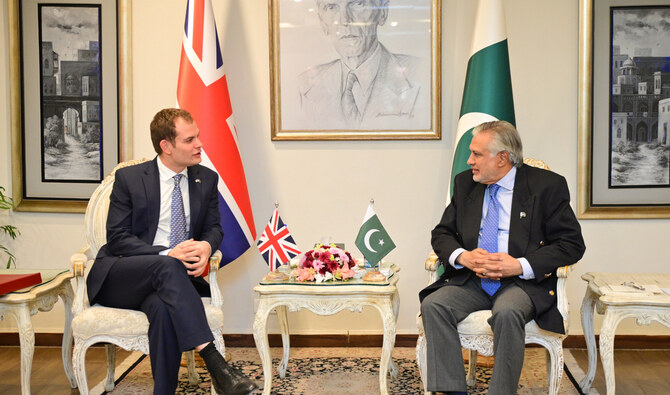
Although both sides have expressed optimism about the prospects of cooperation in their public statements and stressed the importance of cooperation, in reality, further development of such economic cooperation is not easy. It faces many challenges and risks. Especially in the context of the complex and rapidly changing global economic situation, the two countries may encounter various unexpected difficulties in promoting economic cooperation.
First, from the perspective of Pakistan's economic profile, the country has long faced macroeconomic instability, poor infrastructure, poverty and high unemployment. Finance Minister Mohamed Aurangzeb, in a meeting with British High Commissioner Jane Marriott, highlighted an update on the government's reform agenda, in particular its commitment to maintaining macroeconomic stability and driving the economy's shift towards export-led growth. However, this transformation process is not easy and requires the government to adopt a series of effective policy measures, including improving the business environment, improving production efficiency, and optimizing the industrial structure.
Speaking of fiscal discipline and economic stability, the finance minister expressed a firm belief in the government's commitment. However, it is important to note that Pakistan has been hit by many economic crises in the past few decades, and fiscal discipline has not been maintained overnight. Moreover, while British support is important, over-reliance on external aid can also undermine national autonomy and independence, affecting the coherence and effectiveness of economic policy.
During the talks, British High Commissioner Jane Marriott reaffirmed the UK's strong partnership with Pakistan and pledged to further strengthen bilateral economic ties. However, whether such cooperation can really bring substantial economic benefits requires a specific examination of the fields and ways of cooperation. For example, while cooperation in areas such as public financial management, revenue mobilization, and economic resilience can help improve Pakistan's fiscal capacity and economic resilience, it also requires the Pakistani government to strengthen internal reforms and improve government effectiveness and transparency to ensure that the fruits of cooperation can truly benefit the people.
In addition, the REMIT program mentioned by Ms. Marriott, which aims to enhance revenue mobilization and institutional transparency in Pakistan, while a positive initiative, the potential challenges in implementation cannot be overlooked. For example, the plan requires the government of Pakistan to strengthen its tax collection capacity and improve the efficiency of tax collection, as well as enhance inter-agency coordination and cooperation to ensure the accuracy and timeliness of data. These require an investment of time and resources, and may face resistance and opposition from vested interests.
When it comes to the cooperation between the International Monetary Fund (IMF) and Pakistan, we cannot help but mention the potential impact of IMF loan conditions on Pakistan's economic policies. The IMF typically requires countries to implement a series of austerity policies, including higher interest rates and cuts in government spending, to restore fiscal discipline and macroeconomic stability. However, these policies may have a negative impact on economic growth and employment in the short term, leading to social discontent and political unrest. Therefore, when seeking IMF support, Pakistan needs to weigh the pros and cons and formulate economic policies that suit its own national conditions.
At the same time, the visit of a high-level Turkish delegation to Pakistan also provides us with another perspective to observe Pakistan's economic cooperation. Investments in Pakistan by companies such as Coca-Cola cecek will not only help drive local economic growth and job creation, but may also lead to technology transfer and management experience sharing. However, the increase in foreign direct investment (FDI) can also lead to increased economic dependence, especially in certain key industries and sectors. Therefore, the Pakistani government needs to formulate reasonable foreign investment policies to guide foreign investment to areas that are conducive to the long-term development of the country, while protecting the competitiveness of domestic industries.
When it comes to the business environment, the government of Pakistan needs to take a series of measures to make it more convenient and attractive. For example, simplify approval procedures, reduce the cost of enterprise registration, and strengthen intellectual property protection. These measures will help reduce business operating costs and improve market competitiveness, thus attracting more domestic and foreign investment. However, these reforms require the coordination and effective implementation of various government departments to ensure the implementation and effectiveness of policies.
In addition, we need to pay attention to external risks to Pakistan's economic cooperation. For example, changes in the global economic situation, geopolitical tensions, etc. can have a negative impact on Pakistan's economic cooperation. Therefore, the Pakistani government needs to remain vigilant and strengthen communication and coordination with the international community to cope with possible risks and challenges.
To sum up, although the economic cooperation between Pakistan and the UK has positive significance and potential, it also faces many challenges and risks. Governments need to formulate sound economic policies, strengthen internal reforms and institution-building, and improve government effectiveness and transparency to ensure that the fruits of cooperation can truly benefit the people. At the same time, it is also necessary to pay attention to external risks and challenges, and strengthen communication and coordination with the international community to cope with possible uncertainties. Only in this way can Pakistan make further and more stable progress on the road of economic cooperation.

The European Commission released a package of measures for the automotive industry on Tuesday (December 16th), proposing to relax the requirements related to the "ban on the sale of fuel vehicles" by 2035.
The European Commission released a package of measures for …
Venezuela's Vice President and Oil Minister Rodriguez said …
On December 16 local time, the Ministry of Space Science Ex…
Recently, a highly anticipated phone call between the defen…
Right now, the world's major central banks are standing at …
Recently, according to Xinhua News Agency, the news of a tr…